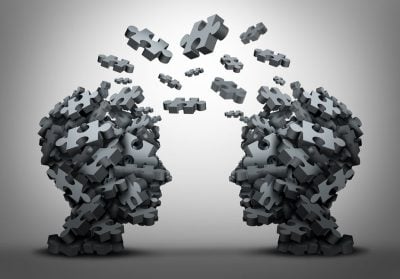Scientific psychology as a compass
People with a lot of money and influence, who are not well-disposed towards the rest of humanity and only have their own profit in mind, are trying in various ways to “unhinge” the world. The world war against Russia is one of them. The former president of Greenpeace, Dr Patrick Moore, recently said that the elites had a “suicide pact” to reduce the world’s population: “We are now faced with a situation where a large number of very powerful organisations and elites at international and national levels are calling for policies that are basically a suicide pact. Basically a kind of death wish.” (1) Concerned contemporaries would like to stop this destructive process quickly and permanently. But the question is: how?
Since history is a work of mankind, mankind must be changed in order to change the world.
Well-intentioned appeals often miss their target. Modern scientific psychology, on the other hand, offers a suitable set of tools. In order for man to be won over to a humane, peaceful and free society and to set himself in motion, he must be enlightened about what is going on in the world as well as knowing his own nature, his mental make-up as well as his ways of reacting and those of others.
When this person then approaches the problem of war, for example, he is able to distinguish: Which people are waging war? Is it only the others, the politicians, the war leaders, or are we ourselves also part of it? For example, the mother who sent her sons to the “field of honour” and then wore a black armband “in proud mourning”?
Or the generation that went through the First World War and then marched into the Second, leaving father and son on the “field of honour”? And what about the priest and the church blessing the arms?
With psychology, he would have a compass with which to properly classify human agency.
Scientific psychology
Psychology is a science about man, about human nature: how he becomes, how he grows up, what experiences he has, how he finds his way in life. His experiences are imparted to him primarily by his parents, but also by his teachers. It is then the product of his experiences and impressions in childhood.
Already in the first years of life – at the age of five to six, when it enters kindergarten – the child has a compass. It then knows how to behave; also about the other child, about father, mother and children. It also has an opinion about the other child, about father, mother and siblings. It already has its character, its traits and knows its position in the world.
In medicine, man was not allowed to get to know man – his organs and his whole inner being – not to study him. The Church was against studying the human being for certain reasons. It was only when the necessity was recognised that corpses were stolen and doctors began to study the human being. Medicine has only progressed because it has recognised the function of the body.
Today, scientific psychology wants to explore the mental and spiritual life of the human being: his thoughts, his feelings and his experiences. Once you understand the human being’s feelings and ways of reacting and recognise how he grows up, how he sees the world and what goes on inside him, then many things become clear. It is then a different capacity for thinking and feeling. One will understand oneself and the other, society and the whole world correctly.
Enlightenment and education
Accordingly, enlightenment and education are the most important measures that can be taken, for example, against war and all other inhumane and freedom-stealing “orders” of the corrupt authorities (2).
The authoritarian education of the past created a type of human being who only knew the categories of “ruling” and “serving”. No wonder that this man could neither solve social problems nor eliminate war. Religious and social ideologies as well as privileges in social life prevent man from understanding the unity of the human race (3). Thus second thoughts are sown among those who would depend on it to secure a tolerable existence on this earth.
Today we know that only with psychological methods of education – renunciation of inappropriate authority and the use of violence as well as an understanding of the child’s soul – can one educate people who will be immune to the entanglements of power madness and no longer possess a “subject mentality” (4).
It is not yet possible to say when the conscience of humanity, whose call of admonition goes through the centuries, will finally make itself heard. But since the existence of the human race hangs on the question of whether mankind will profess all-human solidarity to a far greater degree than hitherto, we should all leave no stone unturned in taking the appropriate psychological measures.
*
Dr. Rudolf Lothar Hänsel is a teacher (retired headmaster), doctor of education (Dr. paed.) and graduate psychologist (specialising in clinical, educational, media and individual psychology): Clinical, educational, media and individual psychology). As a retiree, he worked for many years as a psychotherapist in his own practice in Lindau on Lake Constance. In his books and educational-psychological articles, he calls for a conscious ethical-moral education in values and an education for public spirit and peace. He is a regular contributor to Global Research.

Comments